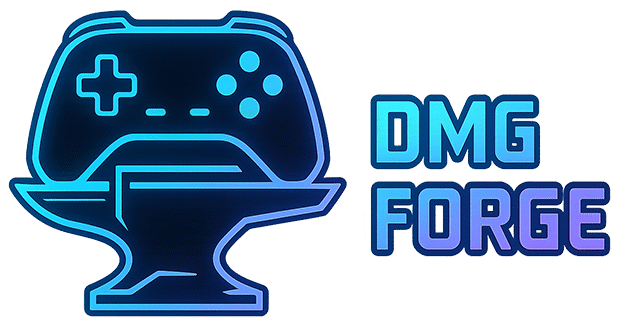Sticking with a big project for months, or even years, can test your patience and drive. Whether you’re working on a passion project, chipping away at game development, cycling through a training plan, or handling repetitive shifts, staying pumped over the long haul doesn’t always come easy. In this guide, I’ll share my experience and tips for keeping motivation steady when the road gets long and the finish line feels miles away.

Understanding Motivation in Long Dev Cycles
Motivation isn’t magic; it’s the energy that keeps you chasing goals, even when things slow down or hit a wall. Big development projects, like games, software, or even personal fitness adventures, rarely wrap up overnight. There’s brainstorming, testing, fixing bugs or errors, and looping through feedback. It’s normal for excitement to dip and spike along the way. Once the initial excitement fades, you might wonder how to keep that energy up for the long haul.
I’ve noticed that different people find motivation in different places. Some thrive on daily progress, others on big milestones. For me, breaking large tasks into smaller steps and celebrating those little wins really powers me through long stretches. Understanding your own motivators makes it easier to build habits that last.
Key Strategies for Sustaining Motivation Over Time
I’ve found a handful of strategies super helpful, and you can tweak them for almost any kind of longterm effort, whether in programming, game dev, cycling, or holding strong during repetitive work.
- Set Clear, Achievable Goals: Aim for goals that are specific and realistic. Instead of “finish the game,” think “complete level design this month.” This keeps you focused and helps you track progress.
- Break Tasks into Chunks: Huge projects can feel overwhelming when they’re one big slog. Split them into tiny tasks or milestones. Each finished bit brings that nice hit of accomplishment.
- Track Your Progress: Using checklists, journals, or even sticky notes, seeing progress, even if it feels minor, gives a big boost. When you look back, you’ll realize how much ground you’ve covered.
- Reward Yourself: Give yourself something to look forward to after pushing through a tough spot. It could be a coffee break, a fun ride, or a few guiltfree hours of gaming.
- Stay Connected: Sharing your journey or teaming up with others helps keep motivation up. Online dev communities, cycling clubs, or even group chats can offer encouragement when energy dips.
Staying Motivated in Game Development
Game development is a wild ride, creative at times, but also packed with repetitive problem-solving, especially during crunch time or bug fixing. Here’s how I keep myself engaged:
- Mix It Up: Switch between creative and technical tasks. Designing a new character, then tackling code, and then playing with sound design breaks the monotony.
- Play Your Own Game: Taking time to actually play or demo your project reminds you why you started and reveals just how far you’ve come.
- Community Feedback: Sharing builds with friends or online beta testers brings fresh energy. That feedback often sparks excitement and new ideas.
- Document Your Progress: Keeping a devlog or posting updates lets you look back at your adventure. Watching your timeline fill up is motivation in itself.
Game devs aren’t alone in these struggles. Many share their ups and downs in communities like GameDev.net or r/gamedev on Reddit; worth checking out for fresh tips and moral support.
How to Stay Motivated in Cycling and Other Longterm Pursuits
Cycling, much like marathon coding, tests your endurance both physically and mentally. Here are tricks that work for me and other cyclists I know:
- Vary Your Routes: Tackle new trails or change your routine. Exploring a new environment, even if it’s just a different street, keeps things fresh.
- Set Personal Challenges: Set distance or speed goals and log your rides. Apps like Strava make it easy to compare your workouts over time.
- Ride With Others: Training partners, cycling clubs, or even social media “ride streaks” can help keep the excitement alive.
- Focus on Progress, Not Perfection: Celebrate an extra mile or shaving a few seconds off your time, rather than stressing about matching last year’s personal best every time.
Staying fired up while cycling shares a lot of overlap with long dev cycles. It’s all about persisting, celebrating those small wins, and remembering why you enjoy the ride in the first place. More tips on staying motivated for athletes can be found at Cycling Weekly’s guide to motivation.
Facing the Grind: Motivation During Repetitive Tasks or Long Shifts
When the work gets repetitive or the shift just drags (think bug testing or factory line work), motivation can bottom out fast. Here’s what works for me:
- Find Small Improvements: Look for tweaks in your workflow that shave off time or add a little bit of challenge; it keeps your brain engaged.
- Gamify Repetitive Work: Turn tasks into games by setting minichallenges or rewards. How many bugs can you catch in an hour? How efficiently can you update lines of code?
- Build in MicroBreaks: Stretch, take a walk to the water cooler, or even just stand up for a couple minutes. It keeps you from burning out.
- Stay Social, If Possible: If you work with people, conversations or music can break up the monotony. If you’re solo, podcasts or audiobooks help time fly.
- Remind Yourself of the Big Picture: It’s easy to get lost in repetition, but each little thing you do slots into a bigger purpose. Keeping this in mind helps you push through.
LinkedIn’s article on getting through lowmotivation days offers more practical tips used by professionals across fields.
Extra Tips for Preventing Burnout Over Long Cycles
Burnout creeps up when you push too hard for too long. Taking small, regular breaks keeps things sustainable. I find these habits lowkey lifesavers over long projects:
- Celebrate Milestones: Don’t just rush from one goal to the next. Enjoy a small reward before jumping into the next challenge.
- Share Successes and Setbacks: Talking about what’s hard or exciting helps you process and move past sticking points.
- Switch Things Up: If something gets stale, trade tasks or projects for a while. Even switching from writing dialogue to coding AI in a game project makes a difference.
- Take Real Downtime: Sometimes, stepping away for a full day is what revives you for months of effort ahead.
Keeping your mind fresh is the key, especially if you balance multiple longterm adventures at once. Sometimes, learning something new or exploring another creative hobby outside your main project sparks renewed excitement. Consider trying a new genre, like learning pixel art if you’re used to 3D work, or swapping from road cycling to mountain biking for a day. Small changes can reignite enthusiasm faster than you’d think.
Common Questions About LongTerm Motivation
How do you maintain that motivation over time?
Regularly revisiting your goals, tracking progress, rewarding yourself, and mixing up your routine keep motivation strong. Connecting with others helps, too—I like sharing both wins and struggles with people who get it.
How to stay motivated in game dev?
Switch between creative and technical projects, playtest your own work, and seek feedback from other devs. Documenting progress and celebrating incremental wins goes a long way in keeping your drive up.
How to stay motivated cycling?
Change up routes, set fresh challenges, join group rides, and focus on personal progress. Tracking your activity with apps and sharing your adventure builds excitement and accountability.
How do you stay motivated during repetitive tasks or long shifts?
Gamification helps as do minichallenges, microbreaks, music, and keeping sight of the bigger picture. Finding connection with coworkers (or even a good podcast) breaks up the monotony.
Keeping the Fire Alive Over the Long Haul
Long cycles, whether in development, fitness, or any routine task, aren’t about waiting until the end to get that feeling of accomplishment. Small wins, steady progress, and remembering why you started keep your energy up even when the finish line is far away. Find the habits that keep you motivated, build in ways to celebrate progress, and don’t forget to ask for support when you need it. That’s how I keep showing up, day after day, cycle after cycle.
